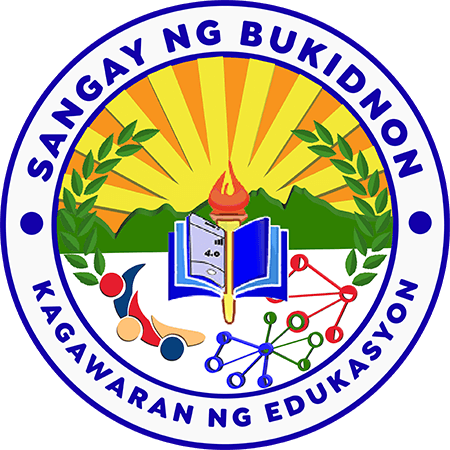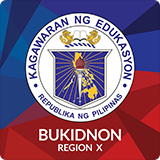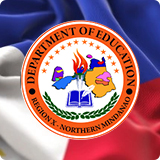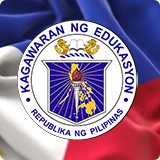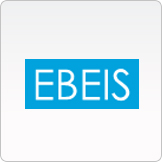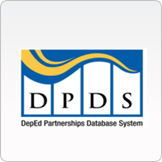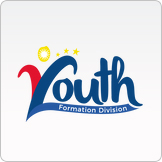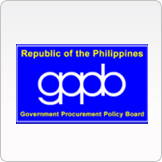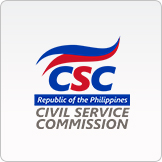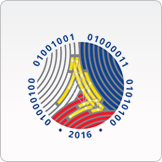WHAT IS THE K TO 12 PROGRAM?
The K to 12 Program covers Kindergarten and 12 years of basic education (six years of primary education, four years of Junior High School, and two years of Senior High School [SHS]) to provide sufficient time for mastery of concepts and skills, develop lifelong learners, and prepare graduates for tertiary education, middle-level skills development, employment, and entrepreneurship.
SALIENT FEATURES
Every Filipino child now has access to early childhood education through Universal Kindergarten. At 5 years old, children start schooling and are given the means to slowly adjust to formal education.
Research shows that children who underwent Kindergarten have better completion rates than those who did not. Children who complete a standards-based Kindergarten program are better prepared, for primary education.
Education for children in the early years lays the foundation for lifelong learning and for the total development of a child. The early years of a human being, from 0 to 6 years, are the most critical period when the brain grows to at least 60-70 percent of adult size..[Ref: K to 12 Toolkit]
In Kindergarten, students learn the alphabet, numbers, shapes, and colors through games, songs, and dances, in their Mother Tongue.
Examples, activities, songs, poems, stories, and illustrations are based on local culture, history, and reality. This makes the lessons relevant to the learners and easy to understand.
Students acquire in-depth knowledge, skills, values, and attitudes through continuity and consistency across all levels and subjects.
Discussions on issues such as Disaster Risk Reduction (DRR), Climate Change Adaptation, and Information & Communication Technology (ICT) are included in the enhanced curriculum.
Students are able to learn best through their first language, their Mother Tongue (MT). Twelve (12) MT languages have been introduced for SY 2012-2013: Bahasa Sug, Bikol, Cebuano, Chabacano, Hiligaynon, Iloko, Kapampangan, Maguindanaoan, Meranao, Pangasinense, Tagalog, and Waray. Other local languages will be added in succeeding school years.
Aside from the Mother Tongue, English and Filipino are taught as subjects starting Grade 1, with a focus on oral fluency. From Grades 4 to 6, English and Filipino are gradually introduced as languages of instruction. Both will become primary languages of instruction in Junior High School (JHS) and Senior High School (SHS).
After Grade 1, every student can read in his or her Mother Tongue. Learning in Mother Tongue also serves as the foundation for students to learn Filipino and English easily.
Subjects are taught from the simplest concepts to more complicated concepts through grade levels in spiral progression. As early as elementary, students gain knowledge in areas such as Biology, Geometry, Earth Science, Chemistry, and Algebra. This ensures a mastery of knowledge and skills after each level.
For example, currently in High School, Biology is taught in 2nd Year, Chemistry in 3rd Year, and Physics in 4th Year. In K to 12, these subjects are connected and integrated from Grades 7 to 10. This same method is used in other Learning Areas like Math.
Senior High School is two years of specialized upper secondary education; students may choose a specialization based on aptitude, interests, and school capacity. The choice of career track will define the content of the subjects a student will take in Grades 11 and 12. SHS subjects fall under either the Core Curriculum or specific Tracks.
CORE CURRICULUM
There are seven Learning Areas under the Core Curriculum. These are Languages, Literature, Communication, Mathematics, Philosophy, Natural Sciences, and Social Sciences. Current content from some General Education subjects are embedded in the SHS curriculum.
TRACKS
Each student in Senior High School can choose among three tracks: Academic; Technical-Vocational-Livelihood; and Sports and Arts. The Academic track includes three strands: Business, Accountancy, Management (BAM); Humanities, Education, Social Sciences (HESS); and Science, Technology, Engineering, Mathematics (STEM).
Students undergo immersion, which may include earn-while-you-learn opportunities, to provide them relevant exposure and actual experience in their chosen track.
TVET (TECHNICAL VOCATIONAL EDUCATION & TRAINING) NATIONAL CERTIFICATE
After finishing Grade 10, a student can obtain Certificates of Competency (COC) or a National Certificate Level I (NC I). After finishing a Technical-Vocational-Livelihood track in Grade 12, a student may obtain a National Certificate Level II (NC II), provided he/she passes the competency-based assessment of the Technical Education and Skills Development Authority (TESDA).
NC I and NC II improves employability of graduates in fields like Agriculture, Electronics, and Trade.
MODELING BEST PRACTICES FOR SENIOR HIGH SCHOOL
In SY 2012-2013, there are 33 public high schools, public technical-vocational high schools, and higher education institutions (HEIs) that have implemented Grade 11. This is a Research and Design (R&D) program to simulate different aspects of Senior High School in preparation for full nationwide implementation in SY 2016-2017. Modeling programs offered by these schools are based on students’ interests, community needs, and their respective capacities.
NURTURING THE HOLISTICALLY DEVELOPED FILIPINO (COLLEGE AND LIVELIHOOD READINESS, 21ST CENTURY SKILLS)
After going through Kindergarten, the enhanced Elementary and Junior High curriculum, and a specialized Senior High program, every K to 12 graduate will be ready to go into different paths – may it be further education, employment, or entrepreneurship.
Every graduate will be equipped with:
- Information, media and technology skills,
- Learning and innovation skills,
- Effective communication skills, and
- Life and career skills.
IMPLEMENTATION AND TRANSITION MANAGEMENT
IMPLEMENTATION
Program implementation in public schools is being done in phases starting SY 2012–2013. Grade 1 entrants in SY 2012–2013 are the first batch to fully undergo the program, and current 1st year Junior High School students (or Grade 7) are the first to undergo the enhanced secondary education program. To facilitate the transition from the existing 10-year basic education to 12 years, DepEd is also implementing the SHS and SHS Modeling.
TRANSITION FOR PRIVATE SCHOOLS
Private schools craft their transition plans based on: (1) current/previous entry ages for Grade 1 and final year of Kinder, (2) duration of program , and most importantly, (3) content of curriculum offered.
ACHIEVEMENTS AND PLANS
FREQUENTLY ASKED QUESTIONS
K TO 12 CONCERNS
- Universal Kindergarten began in SY 2011–2012.
- The enhanced curriculum for Grade 1 and Grade 7 (1st Year Junior High School) was rolled out this SY 2012–2013, and will be progressively introduced in the other grade levels in succeeding school years.
- Grade 11 will be introduced in SY 2016–2017 and Grade 12 in SY 2017–2018.
- The first batch of high school students to go through K to 12 will graduate in March 2018.
Where will the additional two years be added?
The two years will be added after the four-year high school program. This will be called Senior High School.
Why are we implementing 12 years of basic education and not 11 years?
- A 12-year program is found to be the adequate period for learning under basic education. It is also a standard for recognition of students and/or professionals abroad (i.e., the Bologna Process for the European Union and the Washington Accord for the United States).
- Other countries like Singapore have 11 years of compulsory education, but have 12 to 14 years of pre-university education, depending on the track.
- The Philippines is the last country in Asia and one of only three countries worldwide (the other two being Angola and Djibouti) with a 10-year pre-university cycle.
How will K to 12 help in ensuring employment for our graduates?
- The K to 12 Basic Education Curriculum will be sufficient to prepare students for work.
- The curriculum will enable students to acquire Certificates of Competency (COCs) and National Certifications (NCs). This will be in accordance with TESDA Training Regulations. This will allow graduates to have middle-level skills and will offer them better opportunities to be gainfully employed or become entrepreneurs.
- There will be a school–industry partnership for technical–vocational courses to allow students to gain work experience while studying and offer the opportunity to be absorbed by the companies.
What would be the assurance that K to 12 graduates will be employed?
- DepEd has entered into an agreement with business organizations, local and foreign chambers of commerce, and industries to ensure that graduates of K to 12 will be considered for employment.
- There will be a matching of competency requirements and standards so that 12-year basic education graduates will have the necessary skills needed to join the workforce and to match the College Readiness Standards for further education and future employment.
- Entrepreneurship will also be fostered in the enhanced curriculum, ensuring graduates can venture into other opportunities beyond employment.
- DepEd is in collaboration with the Commission on Higher Education (CHED) to provide more opportunities for working students to attend classes.
- DepEd is working with the Department of Labor and Employment (DOLE) to ensure that jobs will be available to K to 12 graduates and that consideration will be given to working students.
The K to 12 Basic Education Curriculum is in accordance with the College Readiness Standards of CHED, which sets the skills and competencies required of K to 12 graduates who intend to pursue higher education.
TRANSITION MANAGEMENT AND FURTHER EDUCATION
What will happen to colleges and universities during the initial nationwide implementation of Senior High School in SY 2016–2017 and SY 2017–2018?
To manage the initial implementation of the K to 12 Program and mitigate the expected multi-year low enrolment turnout for colleges, universities, and Technical-Vocational Institutions (TVI) starting SY 2016-2017, DepEd shall engage in partnerships with them to use their existing facilities and teaching staff. This ensures that during the transition period, the reduction in enrollment in these colleges and universities may be offset.
Where will Senior High School be implemented?
Existing public schools may implement Senior High School. DepEd will be in partnerships with CHED, TESDA, and private schools to use their facilities, especially for the transition years. In addition, new standalone Senior High Schools will be built.
How will DepEd recruit enough teachers for SY 2016-2017 onwards?
- With the continuous increase of the DepEd budget, more teachers are being hired to fill all necessary gaps in schools.
- To aid transition, hiring of (1) graduates of Science, Mathematics, Statistics, Engineering, and other specialists in subjects with a shortage of qualified Licensure Examination for Teachers (LET) applicants, (2) graduates of Technical-Vocational courses, (3) Higher Education Institution faculty, and (4) Practitioners will be allowed.
What are the guidelines for graduates of Science, Mathematics, Statistics, Engineering, and other specialists in subjects with a shortage of qualified Licensure Examination for Teachers (LET) applicants?
- These graduates will be permitted to teach in their specialized subjects in elementary and secondary education. They must pass the LET within five years after their date of hiring to remain employed full-time.
- They will no longer be required to pass the LET if these graduates are willing to teach on a part-time basis.
What are the guidelines for hired technical-vocational course graduates, faculty of Higher Education Institutions, and practitioners?
- Graduates of technical-vocational courses must have necessary certification issued by TESDA and undergo training to be administered by DepEd or a Higher Education Institutions (HEI).
- Faculty of colleges and universities must be full-time professors and be holders of a relevant Bachelor’s degree.
- Faculty of TVIs and HEIs will be given priority in hiring for the transition period.
- DepEd and Private Education Institutions may also hire practitioners with expertise in the specialized learning areas offered by the K to 12 Program as part-time teachers.
How will K to 12 affect the college curriculum?
The college General Education Curriculum is being revised. It will have fewer units with the removal of unnecessary remediation as K to 12 graduates adhere to the College Readiness Standards. With K to 12, the college curriculum will comprise of a year’s worth of General Education subjects and at least two years of major subjects.
Will K to 12 change TESDA Technical Vocational Education and Training (TVET) programs?
No. TESDA will continue to offer TVET programs. Students may also be eligible for NC I and NC II through Junior High School and Senior High School, respectively.
What is my role in supporting this program?
- Be informed. Education shapes our future as Filipinos, it is our duty to be aware of reforms in basic education that will move our country forward.
- Spread awareness. Tell your family, friends, and networks about the K to12 Program and help them stay informed.
CURRICULUM
What will happen to the curriculum? What subjects will be added and removed?
- There is a continuum from Kindergarten to Grade 12, and to technical-vocational and higher education.
- The current curriculum has been enhanced and has been given more focus to allow mastery of learning.
- In Grades 11 and 12, core subjects like Math, Science, and Languages will be strengthened. Specializations in students’ areas of interest will also be offered.
- Students will undergo several assessments to determine their interests and strengths. These will include an aptitude test, a career assessment exam, and an occupational interest inventory for high schools, and should help students decide on their specialization.
- To help guide students in choosing career tracks they intend to pursue, career advocacy activities will be regularly conducted, which will be supported by career and employment guidance counselors.
For Senior High School, what will happen if majority of our students want to specialize in Agriculture and only one is interested to take Mathematics or Business? How will this be accommodated?
- This is an extreme situation.
- The areas of specialization will be offered according to the resources available in a locality and the needs of students.
These schools will remain special schools with an enriched curriculum for Grades 7 to 12.
What will happen to multi-grade teaching?
Multi-grade teaching will continue, and will use the K to 12 curriculum.
The Alternative Learning System (ALS) age requirement is only 16 years old for the high school equivalency test. Will this change to 18? Students might want to turn to ALS if they can save two years of formal school education costs.
The ALS is based on the existing 10-year basic education curriculum. When the new 12-year curriculum will be in place, ALS will likewise be revised.
Will K to 12 enhance programs targeted to indigenous people, Muslim learners, and people with special needs?
Yes, the K to 12 curriculum was designed to address diverse learner needs, and may be adapted to fit specific learner groups.
Kindergarten
Is Kindergarten a pre-requisite for entering Grade 1?
Yes. Republic Act No. 10157, or the Kindergarten Education Act, institutionalizes Kindergarten as part of the basic education system and is a pre-requisite for admission to Grade 1. Public schools will continue to admit children who have not taken Kindergarten into Grade 1 until SY 2013-2014.
Is there an overlap between the daycare program of the LGUs and DepEd Kindergarten?
There is no overlap. Daycare centers of the LGUs take care of children aged 4 and below, whereas the DepEd Kindergarten program is for five-year-old children.
Should schools now prepare permanent records for Kindergarten students?
Yes. Although the assessment of readiness skills of students in Kindergarten is not academically driven, a good measure of the child’s ability to cope with formal schooling is needed for future learning interventions.
Who is in charge of Kindergarten teacher compensation? The LGU or DepEd?
- DepEd is the main agency that employs and pays Kindergarten teachers.
- There are LGUs that assist the Kindergarten program and provide honoraria for Kindergarten teachers.
For SY 2012-2013, 12 Mother Tongue languages are being used for MTB-MLE. More languages, such as Ivatan, will be added in succeeding years.
Which mother tongue will be used in multi-cultural areas?
- The common language in the area, or lingua franca, shall be used as the medium of instruction.
- The principle of MTB-MLE is to use the language that learners are most comfortable and familiar with.
TEACHERS AND DEPED NONTEACHING STAFF
Will teachers be burdened by additional teaching load due to the K to 12 Program?
There will be no additional workload due to the K to 12 Program. The Magna Carta for Public School Teachers provides that teachers should only teach up to six hours a day.
Will teacher salary increase as a result of the K to 12 Program?
- The K to 12 Program will not result in a teacher salary increase because there will be no additional teaching load or additional teaching hours.
- Salary increases for other reasons, such as the Salary Standardization Law, inflation, promotion, and Performance-Based Bonuses (PBB), may apply.
- Teachers will be given sufficient in-service training on content and pedagogy to implement this program. Current DepEd teachers shall be retrained to meet the content and performance standards of the enhanced K to 12 curriculum. The pre-service education training for aspiring teachers will also be modified to conform to the requirements of the program. DepEd, in coordination with CHED, shall ensure that the Teacher Education curriculum offered in Teacher Education Institutions will meet the necessary quality standards for new teachers.
- Training of teachers will follow the phased-in introduction of the enhanced curriculum.
How will DepEd prepare its non-teaching staff and officials for smooth transition and implementation of the K to 12 Program?
- With the broader reform agenda, DepEd is ensuring the preparedness of the organization by introducing organizational development interventions to continuously improve its service delivery to the Filipino people.
- School Leadership and DepEd officials shall undergo workshops and training to enhance skills on their role as academic, administrative, and community leaders.
BUDGET
DepEd lacks resources to address its current input shortages. With K to 12 and its added resource needs, how will this be addressed?
- All input shortages will be wiped out before the end of 2013. A 1:1 ratio for student-to-textbook and student-to-seat will be achieved within SY 2012-2013. Shortages in classrooms, teachers, and toilets will be fully addressed next year.
- The DepEd budget received a 23% increase in 2013 and budgetary requirements for K to 12 will be included in succeeding appropriations for full implementation.
- We also have the support of local government units and private partners to build the needed infrastructure.
- Private partners can donate through our Adopt-A-School program, which provides them a 150 percent tax rebate for their contribution.
- Individuals and institutions can take part in the TEN Moves! Campaign to build 10,000 classrooms by donating P10 per day for ten months.
- LGUs can follow the front-loading scheme using their Special Education Fund as collateral and the allocation as amortization.
- For teacher items, LGUs also help by hiring qualified teachers for our public schools and paying honoraria for them.
- We have enough time to provide the additional classrooms, teachers, and instructional materials since they will be needed beginning SY 2016–2017.
ENSURING SUSTAINABILITY OF THE PROGRAM
I like this program but I’m worried about additional cost to families. How will government respond to this difficulty?
- Kindergarten and 12 years of basic education is offered for free in public schools.
- There are additional indirect costs, but government agencies are collaborating to provide programs that will enable everyone access to quality education, especially to those with lesser means.
- Proposals such as the expansion of the Education Service Contracting (ESC) scheme under the Government Assistance to Students and Teachers in Private Education (GASTPE) and other cost-sharing arrangements are being developed by DepEd.
- K to 12 graduates should have higher earning potential as they will be more competent and skilled.
- As a result of the K to 12 Program, particularly the more specialized education in Senior High School, CHED is exploring the possibility of decreasing the number of years of certain degree programs in college.
- K to 12 graduates can obtain national certification from TESDA, which will enable them to have more employment opportunities.
- DepEd prefers the term “school leavers” rather than “dropout,” recognizing that most students who discontinue schooling were pushed out of the system due to factors beyond their and their parents’ control.
- Keeping students in school is a responsibility of the entire community. To respond to this, DepEd and other government agencies are collaborating to make sure that all children stay in school through programs like the Pantawid Pamilyang Pilipino Program (4Ps) of the Department of Social Welfare and Development (DSWD).
- The curriculum will be learner-centered, enriched, and responsive to local needs. It will also allow students to choose electives and specializations that suit their interest. This should partly address those who stop attending school because of the perceived lack of relevance of the curriculum.
- DepEd will also continue to offer programs such as home schooling for elementary students and the school leavers reduction program for high schools. These programs address the learning needs of marginalized students and learners at risk of leaving the school system.
- A Joint Oversight Committee from the Senate and the House of Representatives shall be formed to oversee, monitor, and evaluate implementation.
- By the end of SY 2014-2015, DepEd will conduct a review of the implementation of the K to 12 Program and submit a midterm report to Congress.
Won’t this be another avenue for corruption? How can you ensure that funds will be released and used properly?
- DepEd fully supports the Aquino administration’s drive against corruption.
- We will regularly package and disseminate information on agency budgets, bidding and procurement documents, and SALNs (Statements of Assets, Liabilities, and Net Worth) of senior government officials, to ensure transparency and accountability.
- It is also in our best interest to ensure that funds and resources are not lost to corruption.
*All information came from the Department of Education
